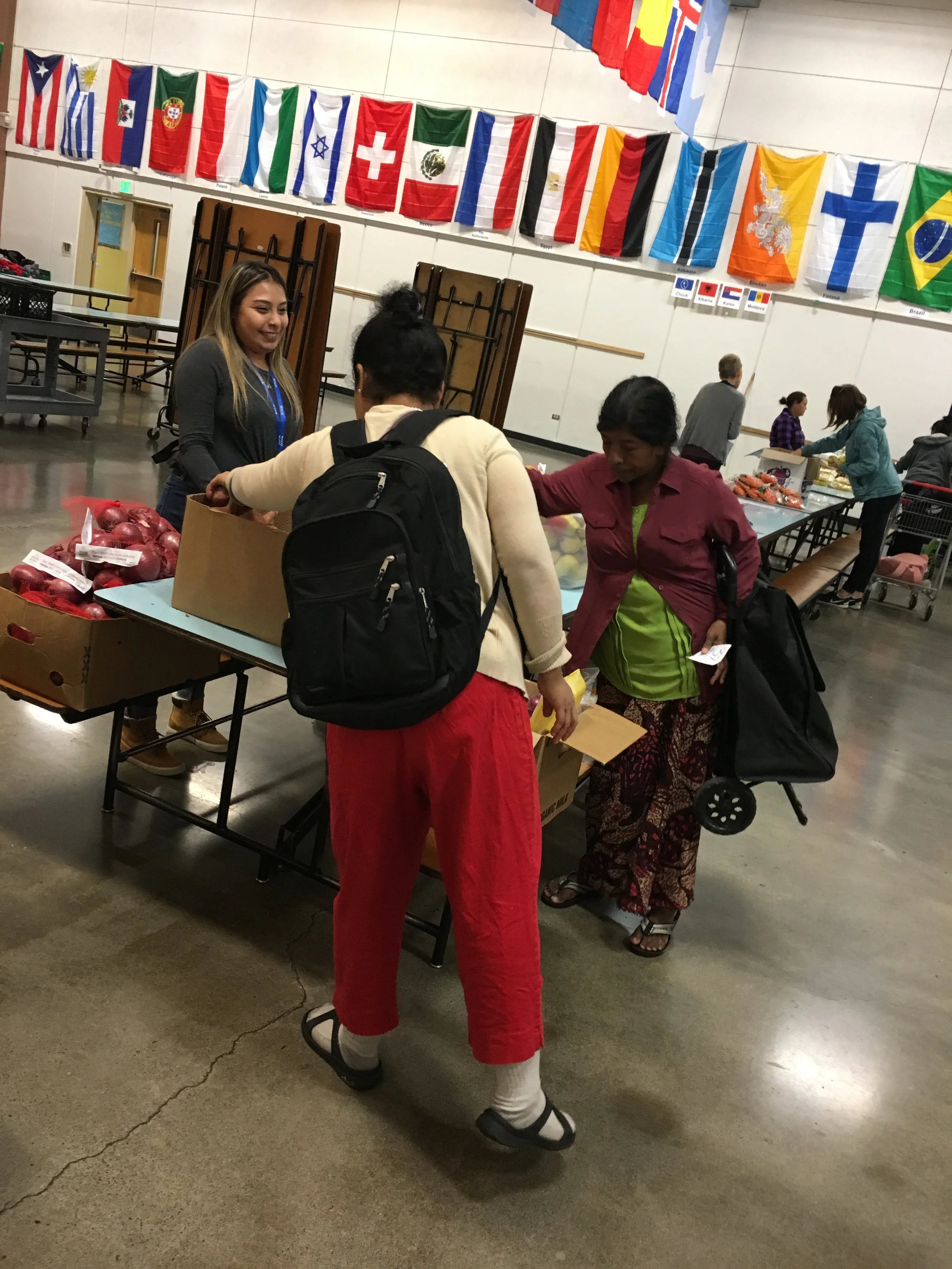Paola during a visit to a food pantry.
When you hear the term “food insecurity”, what are the first thoughts that come to mind? For me, I think of unfocused children, teens, and overwhelmed parents.
Growing up I was very fortunate to have a home cooked meals every day I came home from school, even now as a college student. As I stepped back from my reality and viewed the world around me, I saw food insecurity in communities. It wasn’t always physically visible, most of it was through behavior. Oregon is ranked 13th in the nation for food insecurity. What does this mean? This means that there are 552,900 people who suffer from food insecurity and 194,070 of those are children. When a child is unfocused it’s more than they are just misbehaving. They may have not had breakfast, or don’t have lunch money, or know they won’t have dinner, so they the focus on how they are going to get through the rest of their day. Food insecurity affects their education.
One of the school gardens that IRCO uses to provide fresh foods to the Food Pantries.
This fall, I will be working with the Immigrant and Refugee Community (IRCO) to promote public health. As a part of that, my time will be spent working with Schools Uniting Neighborhoods (SUN) program in the Hunger Relief Pantries across different schools and with the Global Cooking Classes. The desired outcome is to observe the structure of these pantries and review the curricula. Our goal is to see how can we make these programs more culturally response and bring more awareness to these programs that are aimed to reduce food insecurity. The pantries serve anywhere from 10 to 50 families within each community and there are 13 different SUN schools throughout the Metropolitan area that offer either an Oregon Food Bank Pantry or a Fresh Food Pantry. The Global Cooking classes serve roughly 10-15 students and parent volunteers and is offered at a small handful of schools.
Through my previous community service experience with youth, I developed a strong passion for creating an accepting and supportive environment for youth. Everyone deserves to feel that they belong and no child should have to worry about where their next meal is coming from. It’s more than just food insecurity here, in the Metropolitan area because if parents know that they are supported this creates empowerment for them. Finally, if children don’t have to worry about their next meal then they can focus on school and extracurricular activities and that empowers children.



